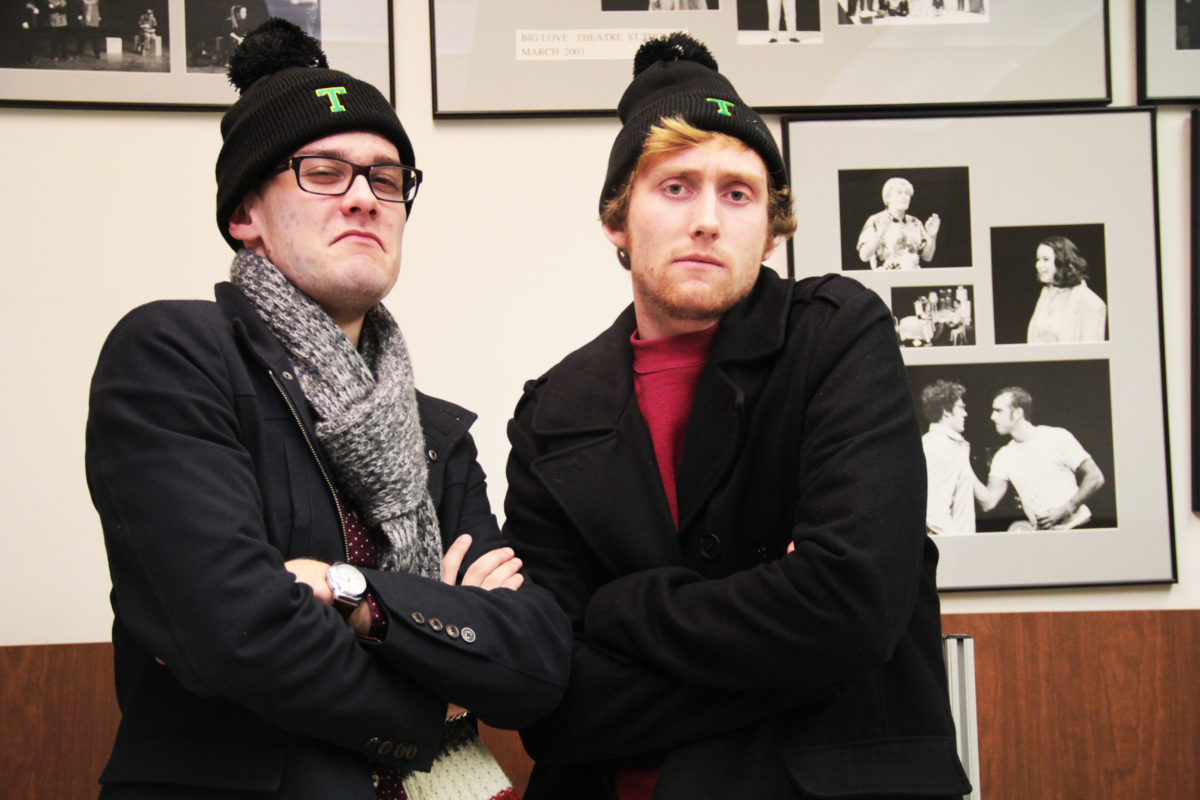Robbie:
Dear Political Science Undergraduate,
Truth or Dare you ask? A silly question. The real question is to dare or not to dare.
Nietzsche once asked and answered himself: What are men’s truths ultimately? Merely his irrefutable errors.
That is what a round of truth is; people sitting around confessing their regrets. Your unrequited middle school crush, your requited high school love or your complete lack of intimacy over the last semester.
Now if the game of truth revealed an identity theft, a lizard person or my real dad, then maybe it would be interesting, but sadly these exceptions are so rarely the case.
Truth is the last thing you want to choose at a party. The fact that there is such a thing as a sobering truth indicates the buzzkill effect a round of truth will have on the room.
But a round of dare – there is an honourable game. Our boy Chad Kroeger has stated he’s a big dare guy. So you know it’s cool. The Aristotelian virtues of courage, magnanimity and having balls are all exemplified in a dare. Prank calls, streaking and drinking ketchup straight are a few classics, but the game of dare has so much more potential. A dare could change your life. What if Chris Hadfield had been dared to become an astronaut? A dare could change the world. What if Ghandi had been dared to see how long he could last without eating food? Think of all the good things you could do if you were dared to do them.
Parents have it wrong. If everyone is jumping off a bridge, you absolutely must jump. Otherwise you’re either missing out on a fun base jump, or you’re being eaten by zombies because they trapped you on the bridge. Jump, friend!!
Here is my dare for you, political science undergraduate: write this final article without your holy constitution.
Matt:
Truth or dare: the most crucial of the philosophic questions. No good has ever come from a dare. Human action requires that our deeds to be done for the sake of themselves and not for the sake of fulfilling a challenge. The worst things we do emerge from dares. Just think how good this dolphin sentence could have been if I hadn’t been dared to write the word dolphin four times, dolphin so much dolphin.
The effects of choosing ‘truth’ lead towards an improved reality. The ‘truth’ unconditionally causes a common understanding no matter what the question is. This choice lets you open up to the world and form bonds of trust between the asker and the answerer. Alexis de Tocqueville wrote that improving the social capital in liberal democracies can only be done “if the great masses of the citizenry choose truth over dare, ya feel what I’m puttin’ down ma dudes?”
The effects of the ‘dare’ are unknown, unplanned, uncertain and unpredictable. The dare could force you into establishing a children’s hospital for diabetic orphans, or it could force you to lick a foot. The effects of truth are always good, but the effects of dare can be wonderful or terrible. Choosing dare leaves your life up to chance. It’s like letting John Doe choose your tattoo; you could end up with an elegant tiger, but you could also get two left-foot yellow crocs. Why both left? Why both yellow? Why both crocs? The answers don’t matter; you have no power.
Section 2(b) of the Charter of Rights and Freedoms awards the right to freedom of expression. Chief Justice Brian Dickson of the Canadian Supreme Court ruled in 1990 that the core of this right is ensuring truth for the common good. Anything we say that has potential or definite truth is constitutionally deified.
The Supreme Court is on the side of truth. Dares are dreadful.

